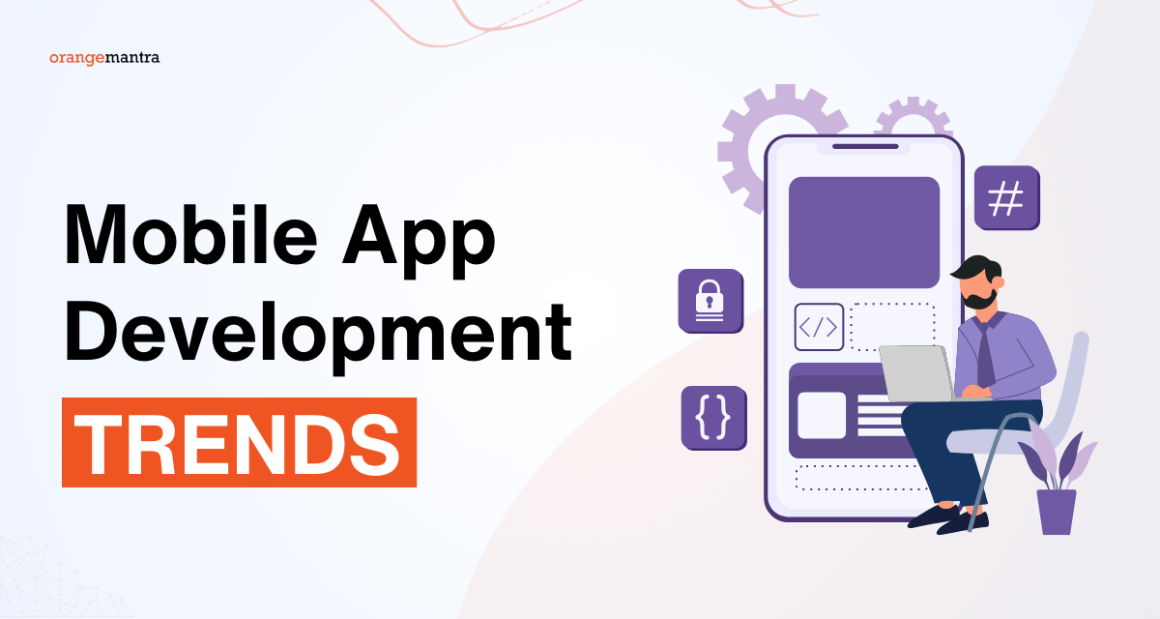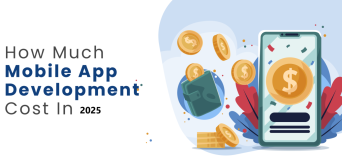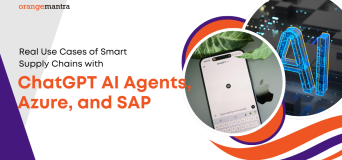Did you know that the global mobile app market is expected to surpass $600 billion by 2025? This startling figure demonstrates how mobile applications are becoming essential for companies all around the globe rather than a luxury. For companies hoping to stay competitive and satisfy changing user demands as we enter 2025, keeping ahead of mobile app development trends has become essential.
The development of mobile apps is at a turning point when user behavior, technology, and market needs are all met. Companies may get a big advantage by adjusting to these changes, while those that don’t run the danger of slipping behind. Understanding the trends influencing this ever-changing market will help you succeed, whether it’s via the creation of super app development or improvements in mobile app development frameworks.
Addressing Business Pain Points with Smarter Mobile App Solutions.

1.Fragmented User Experience:
Creating consistent user experiences across platforms is a challenge for many firms.
2.Increasing Development Costs:
Without the proper tools and frameworks, creating applications with sophisticated functionality may be costly.
3.Issues with Data Security:
Ensuring app security has become more difficult due to the rise in cyber threats.
4.Long Development Timelines:
In sectors that move quickly, time-to-market delays might make it more difficult to compete.
5. Scalability Issues:
As user needs increase, apps often struggle to expand efficiently.
Innovative Solutions to Overcome Business Hurdles and Drive Success in the Mobile App Era.
Adopting Advanced Frameworks:
Using state-of-the-art frameworks for mobile app development ensures good performance while lowering expenses and development time.
Investing in Super App Development:
By combining many services, multifunctional applications may improve user engagement.
Using Edge Computing:
Edge computing enhances app performance, dependability, and security by processing data closer to the user.
Improved Put Security First:
Including strong security measures protects user information and fosters confidence.
Agile Development Practices:
Using agile approaches guarantees quicker iterations and flexibility in response to changing market conditions.
Top 7 Trends in Mobile App Development to Keep an Eye on in 2025

-
Super App Development
In the digital world, super applications are increasingly essential. They provide consumers with an unmatched degree of ease by combining several services like ride-sharing, e-commerce, payments, and chat into a single app. By combining many features, these applications not only increase user engagement but also provide companies access to new income sources. WeChat in China evolved into a multifunctional application which allows users to handle energy bills alongside ticket reservations through one platform. The dissemination of super apps throughout the world is expected in 2025 due to increasing enterprise recognition of their advantages for Southeast Asian markets which show rising adoption of multifunctional applications.
-
Computer Edges
The way mobile applications handle and present data is changing as a result of edge computing. This technique significantly lowers latency and improves app performance by putting processing power closer to the source, such as a user’s device or a nearby network node. Applications that need real-time monitoring, such as wearable heart rate or glucose tracking devices, are supported by edge computing for sectors like healthcare. It facilitates quicker transaction processing in the financial industry, guaranteeing smooth and safe customer experiences. Edge computing will be crucial to preserving the responsiveness and dependability of networked devices as IoT use grows.
-
AI-Powered Customization
Delivering user-centric mobile app experiences now relies heavily on artificial intelligence. AI-powered algorithms may provide curated information, tailored recommendations, and even predictive predictions by examining user data and behaviour. For example, streaming services like Netflix may suggest episodes depending on watching preferences, and e-commerce applications can display items customized to a user’s tastes. AI is revolutionizing healthcare applications by giving users personalized exercise regimens and prescription reminders, going beyond entertainment and shopping. This degree of customization is a key trend for mobile app development in 2025 as it increases client happiness and encourages brand loyalty.
-
Cross-Platform Development
Cross-platform development frameworks like Flutter and React Native have become more popular as companies want to expand their customer base. Developers may write code once and have it run on iOS and Android thanks to these frameworks. This guarantees a consistent user experience while also saving time and money. Modern cross-platform solutions not only save money but also provide near-native performance, which was previously difficult to achieve. Businesses are using these frameworks more and more to build their applications more quickly without sacrificing quality, particularly startups and SMEs. In 2025, developers will continue to choose cross-platform programming because of the increasing desire for efficiency.
-
Integration of IoT
Through its Internet of Things (IoT) technology mobile applications now function seamlessly with smart devices. Online platform integration stands as a key driver of modern convenience because it allows users to control their smart home devices and wearable healthcare trackers. The Internet of Things drives several different business areas to deliver enhanced services through applications. For example, automakers are using IoT to allow mobile applications to remotely manage vehicle operations. IoT-powered applications are improving predictive maintenance and supply chain operations in the industrial sector. IoT integration with mobile applications will open up new possibilities for both consumers and enterprises as it develops further.
-
Innovations in AR and VR
Virtual reality (VR) alongside augmented reality (AR) moved past their initial video game exclusivity. Modern technological applications create disruptions throughout healthcare education and retail-related operations. Through their app, IKEA enables customers to preview upcoming purchases by incorporating augmented reality technology inside their current rooms. Virtual reality (VR)-enabled educational applications to create fully immersive virtual experiences where students can execute scientific investigations virtually and visit historical sites digitally. In the medical domain healthcare applications employ augmented reality technology to support both virtual consultation initiatives and training simulation activities. Users now engage with absurdly revolutionary technology that merges digital elements with actual environments while simultaneously setting benchmarks for mobile application features.
-
5G Technology
With speeds up to 100 times faster than 4G, the worldwide deployment of 5G is revolutionizing the possibilities of mobile apps. Apps with cutting-edge features like real-time gaming, augmented reality, and high-definition video streaming are being enabled by this ultra-low latency and greater bandwidth. Companies are using 5G to improve user experiences; retail applications, for example, may now provide AR-based virtual try-ons with no latency. Additionally, as 5G speeds up access to data stored on distant servers, cloud-based applications are becoming more effective. 5G will play a significant role in enabling future-ready mobile applications as usage rises, expanding the capabilities of apps in 2025 and beyond.
Recent Applications of Mobile App Development

1.Healthcare applications:
By integrating edge computing, healthcare applications can now analyze patient data instantly, leading to quicker diagnosis and better treatment.
2.eCommerce Apps:
By integrating payment processing, customer service, and shopping into a single platform, super app development is transforming eCommerce.
3.Education Apps:
Scalable learning systems can now be created at a reasonable cost thanks to mobile app development frameworks like Flutter and React Native.
4.Smart Homes:
By empowering IoT-enabled applications, edge computing has improved the operation of smart home appliances.
5.Gaming applications:
The development of high-performance gaming applications with breathtaking visuals and captivating experiences has been made possible in large part by sophisticated frameworks.
How Businesses Thrived with Emerging Mobile App Trends
Alibaba’s Super App Model:
Alibaba became a worldwide leader by embracing super app development to provide a smooth user experience that combines payments, shipping, and e-commerce.
Netflix’s Use of Edge Computing:
Even in places with poor connection, Netflix uses edge computing to provide continuous streaming services.
Cross-Platform Development for Duolingo:
Duolingo expanded its platform to millions of users globally by using contemporary mobile app development frameworks.
How Using These Technologies Can Help Businesses Expand
Improved User Retention
Sophisticated frameworks guarantee that applications are quick, useful, and easy to use, which keeps users interested.
Savings
By eliminating the need for many applications, super app creation saves money on operating costs and consolidates resources.
Faster Time-to-Market
Companies may satisfy market needs by launching applications faster thanks to agile development and contemporary frameworks.
Increased Customer Trust
Long-term loyalty is fostered by improved security procedures that guarantee customer data is secure.
Scalability
As user bases increase, enterprises may easily expand applications thanks to edge computing and strong frameworks.
Important Takeaways
Staying competitive requires an understanding of mobile app development trends.
The way organizations build and maintain applications is being revolutionized by edge computing and super app development.
Purchasing the appropriate frameworks for developing mobile apps may improve user happiness and scalability.
Using creative ways to solve corporate problems promotes resilience and development.
The achievements of prominent figures in the sector underscore the significance of being ahead of the curve.
Bringing Everything Together
Rapid technical breakthroughs and changing customer expectations characterize the 2025 mobile app development scene. Companies are more likely to succeed if they follow trends like edge computing, super app development, and innovative frameworks. Even if problems like growing expenses and data security issues still exist, taking advantage of these developments might lessen hardships and provide doors for expansion. Businesses of all sizes, but particularly SMEs, may profit from these developments by effectively scaling and meeting particular business demands.
FAQ
Q1: What are the services for developing mobile apps?
Designing, creating, and managing mobile apps for companies to satisfy certain objectives and user requirements is included in mobile app development services.
Q2: Which mobile app development trends will be most popular in 2025?
The use of contemporary mobile app development frameworks like Flutter and React Native, edge computing, and super app development are some of the trends.
Q3: What advantages may edge computing provide mobile applications?
By processing data closer to the user, edge computing enhances security, lowers latency, and improves app performance.
Q4: What benefits can super app development offer?
Super applications save development costs and increase user convenience by combining many features onto a single platform.



